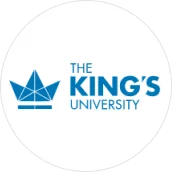• Germany
MBA in Germany: Fees, Top Colleges, Courses, Eligibility, and Jobs
1981 Reads
3 min Read
Germany is among the top countries where several students resettle to continue their higher education. Graduates usually choose to pursue an MBA in Germany because of the possibilities it offers. This increases the student’s chance at a better life and career. Relocating to Germany is a lengthy procedure that can be daunting for some. But, with the help of this blog, students can take the first step.
Table of Contents
- • Why Choose Germany for an MBA?
- • Top Universities in Germany for MBA
- • Eligibility Criteria for studying MBA in Germany
- • Fee Structure for studying MBA in Germany
- • Can I Pursue an MBA in Germany for Free?
- • Documents required to Apply for an MBA in Germany
- • Job Opportunities After studying MBA in Germany
MBA is a popular choice among students to pursue in foreign countries. Due to the scope of this program worldwide, several undergraduates opt for this course. Students especially choose to pursue an MBA in Germany because of the opportunities it offers. However, students must gather complete information to move ahead.
Why Choose Germany for an MBA?
Top Universities in Germany for MBA
| Universities | MBA programs |
| Arden University | MBA |
| Berlin School of Business and Innovation | MBA |
| University of Europe for Applied Sciences | • MBA Diplomacy • Master of Business Administration • MBA Shipping and Logistics • MBA Sustainable Water Management |
| International University of Applied Sciences | • Master of Business Administration • MBA – Artificial Intelligence • MBA – Big Data Management • MBA – E-Sports Management • MBA – Engineering Management • MBA – Finance & Accounting • MBA – Healthcare Management • MBA – Human Resource Management • MBA – IT Management • MBA – Innovation & Entrepreneurship • MBA – International Marketing • MBA – Salesforce & Sales Management • MBA – Supply Chain Management |
| Macromedia | • MBA Data Analytics • MBA International Business • MBA Marketing • MBA Master of Business Administration |
Eligibility Criteria for studying MBA in Germany
Fee Structure for studying MBA in Germany
| Universities | Fees Structure (Annually) |
| Arden Universities | €16,500 |
| Berlin School of Business and Innovation | €9000 |
| University of Europe for Applied Sciences | €12332 |
| International University of Applied Sciences | €15,024 |
| Macromedia | €5,300-6,500 |
The tuition fee might vary depending on the course duration as well as the campus.
Can I Pursue an MBA in Germany for Free?
Documents required to Apply for an MBA in Germany
| Academic Transcripts | From 10th to a Bachelor’s or Master’s degree, students need to submit all these transcripts. |
| CV/Resume | An updated resume of the students briefly stating their qualifications and job details. |
| SOP (Statement of Purpose) | A statement of purpose expressing their interest in the chosen course and why they will be perfect for the university. |
| LOR (Letter of Recommendation) | Letters of recommendation from professors are also necessary. |
| Financial documents | A proof of funds covering the candidate’s educational and living expenses. |
| Work Experience Certificate | The applicant might need to provide a certain period of work experience, depending on their program. |
Job Opportunities After studying MBA in Germany
| Job Position | Avg. Annual Salary ( EUR) | INR (Lakhs) |
| Project Manager | 60,741 | 55,36,000 |
| Business Analyst | 54,904 | 50,04,000 |
| Digital Marketing Manager | 47,567 | 43,36,000 |
| Operations Manager | 53,196 | 47,19,000 |
| Sales Manager | 58,958 | 53,74,000 |
| HR Manager | 50,872 | 46,37,000 |
Conclusion
FAQ
Get great articles direct to your inbox
The latest news, articles, and resources, sent straight to your inbox every month.
Popular Universities to Study Abroad
World class education waiting for you.

Universal College of Learning (UCOL) - Wairarapa Campus
Wellington, New Zealand • 4 Programmes
Tuition Fee : NZD 20500-22500 / year

Study Group - Durham University International Study Centre - Queens Campus
England, UK • 186 Programmes
Tuition Fee : GBP 22000-24000 / year



TCS - The Chicago School of Professional Psychology - Dallas Campus
Texas, USA • 3 Programmes
Tuition Fee : USD 0-0 / year

University of Essex - Colchester Campus
England, UK • 600 Programmes
Tuition Fee : GBP 17000-21000 / year


Popular English Language Proficiency Exams
Blogs and Articles
Curated content to keep you updated on the latest education trends, news and more.
ACT vs. SAT: Which One to Choose?
Updated on • Apr 14,2025 01:46 PM IST • Study Abroad
Updated on • Apr 11,2025 05:53 PM IST • IELTS
Backlog Certificate: A Complete Guide
Updated on • Apr 11,2025 01:47 PM IST • Study Abroad Guidance
PTE Score Chart 2025: PTE Exam Scoring System & Calculation
Updated on • Apr 09,2025 05:37 PM IST • PTE
Master's in Computer Science in the USA
Updated on • Apr 08,2025 05:59 PM IST • USA
Top Trending MBA Specialisations in 2025
Updated on • Apr 08,2025 04:47 PM IST • Study Abroad
Describe Your Hometown IELTS Speaking Part 1 Topic
Updated on • Apr 07,2025 05:50 PM IST • IELTS
How to Get a Job in USA in 2025
Updated on • Apr 07,2025 03:19 PM IST • USA
Highest Paying Jobs in the World
Updated on • Apr 01,2025 05:31 PM IST • Study Abroad
Student Life in Ireland in 2025
Updated on • Mar 29,2025 05:50 PM IST • Ireland
Top Public Universities in Germany
Updated on • Mar 26,2025 04:33 PM IST • Germany
Top Universities for Masters in Ireland in 2025
Updated on • Mar 25,2025 04:36 PM IST • Ireland
Cost of Living in Singapore for Indian Students in 2025
Updated on • Mar 22,2025 11:57 AM IST • Singapore
PTE vs IELTS : Know the Difference and Which is Easier?
Updated on • Mar 21,2025 03:38 PM IST • IELTS
Updated on • Mar 20,2025 10:19 AM IST • Germany
Updated on • Mar 12,2025 11:20 AM IST • Ireland
Updated on • Mar 11,2025 01:18 PM IST • USA
Best Countries to Study Abroad for Indian Students in 2025
Updated on • Mar 08,2025 01:24 PM IST • Study Abroad
Updated on • Mar 05,2025 12:19 PM IST • UK
Fastest Growing Job Sectors in Germany in 2025
Updated on • Feb 28,2025 04:04 PM IST • Germany
Related Blogs and Articles
A little effort to provide an authentic and reliable content for keen readers!!
Top Public Universities in Germany
Updated on • 26-03-2025 • Germany
Updated on • 20-03-2025 • Germany
Fastest Growing Job Sectors in Germany in 2025
Updated on • 28-02-2025 • Germany
Updated on • 21-02-2025 • Germany
Updated on • 04-02-2025 • Germany
Job Opportunities after Masters in Germany
Updated on • 19-12-2024 • Germany
Letter of Motivation for Germany
Updated on • 07-12-2024 • Germany
Universities of Applied Sciences in Germany
Updated on • 27-11-2024 • Germany
Student Accommodation in Germany
Updated on • 14-09-2024 • Germany
Best Cities in Germany for Indian Students
Updated on • 07-09-2024 • Germany
Transportation for Students in Germany
Updated on • 05-09-2024 • Germany
Intakes in Germany for International Students
Updated on • 18-03-2024 • Germany
Master's in Mechanical Engineering in Germany: Programs, Eligibility, & More
Updated on • 18-03-2024 • Germany
Cost of Living in Germany for International Students
Updated on • 11-03-2024 • Germany
Master's in Management (MIM) in Germany
Updated on • 02-03-2024 • Germany
Updated on • 01-03-2024 • Germany
Updated on • 29-02-2024 • Germany
Master's in Germany 2024 : Universities, Eligibility, Courses & More
Updated on • 15-02-2024 • Germany
German Colleges & Universities accepting 5.5 Bands in IELTS
Updated on • 10-05-2023 • Germany












